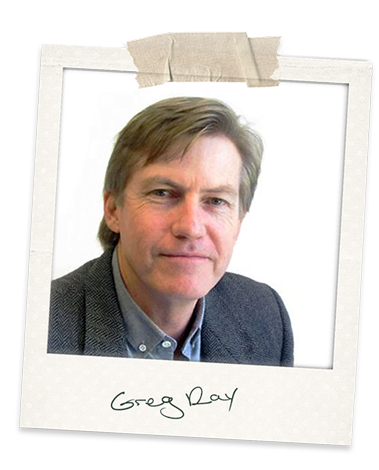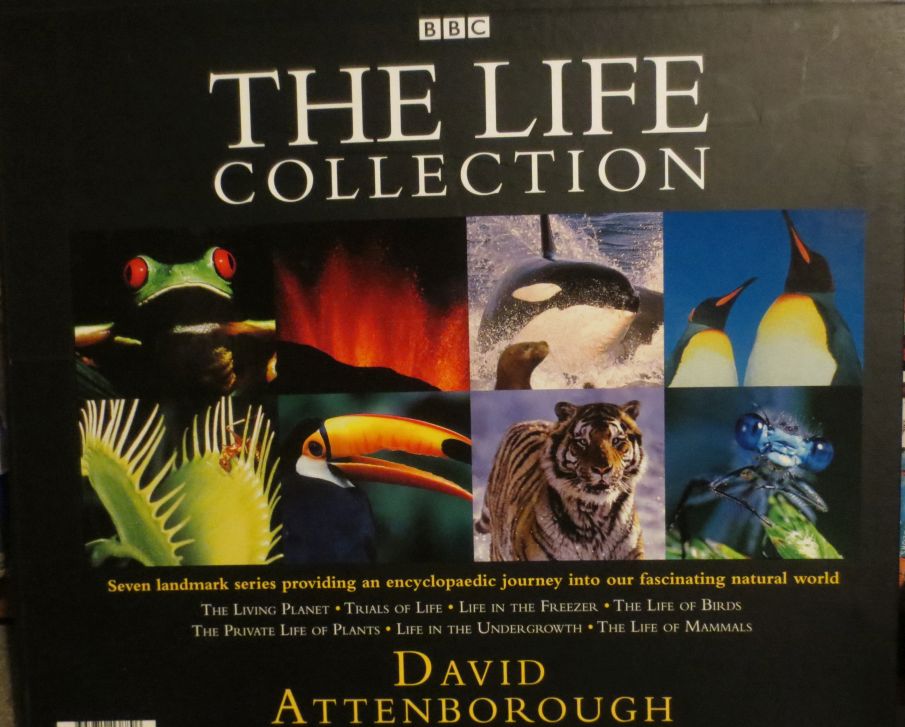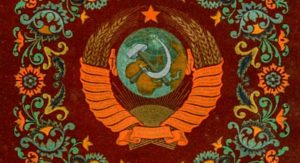Nature documentaries have shown me a lot.
Not just about how plants and animals live, although that’s the foundation of it.
The big things I’ve learnt from watching nature documentaries are real zoom-out insights: things that I can ponder on a larger scale and use in contemplation of my own life and surroundings.
First of all, the thing I always noted about DNA-based life on Earth is the imperative for organisms and communities of organisms to win a surplus of energy from their surroundings. It’s obvious: you can’t grow and reproduce without an energy surplus. You have to extract that surplus somehow, using energy from somewhere. Very often, we observe on our documentaries, organisms get that surplus by taking it forcibly from other organisms.
We see how DNA self-assembles survival machines of a myriad patterns, all finding ways to get the energy surplus required to build a new generation, then another, then another – each generation cunningly imbued at a basic level with a mysterious innate capacity to refine and redesign itself in pursuit of its pre-programmed goal.
Plants that photosynthesise, other plants and animals that parasitise, violent predators: every technique for surplus-extraction is employed. We see arms races between species with one striving to build defences and other striving just as hard to devise new means of surmounting those defences. Armour. Weapons. Traps. Warfare.
Underneath it all that inscrutable molecule, DNA, working its own destiny beyond the comprehension of the organisms it builds.
If the individual cannot extract a surplus from its surroundings then it cannot grow and reproduce. It’s the ultimate imperative where only the successful live to be part of the unfolding story. Inability to win a surplus means death.
As humans we are subject to the same law and no amount of philosophizing can change or obscure the reality. Take in food and water, breathe air, grow and reproduce. All the rest is artifice, and even the artifice reflects the fundamental basic drive.
Accumulating surpluses
Our societies, no less than we as individuals, must accumulate surpluses to thrive and prosper. And we find that, within those societies, individuals are confronted with the aching dilemma of reconciling the individual drive to seek a surplus with the understanding that social co-operation is the best path to that basic individual goal.
We build families, tribes, nations, corporations. All of them seek a surplus. Economics is all about extracting surpluses and driving growth. And when it comes to seeking growth, humans and their social entities are no less able to restrain themselves than any other organisms built by DNA. Life as we know it will expand to its limits, only stopping at the hardest of hard boundaries, with no capacity to pause and consider.
We see this now, as humans race to self-destruction using supercharged social machines called nations and corporations – all hell-bent on maximum growth and self-perpetuation – to ruin Earth and overwhelm all other life. It’s a tragedy, more tragic since we can actually see it happening in real time but appear utterly unable to prevent it or even slow it down. Just as DNA has programmed life to seek out and exploit every possible niche where surplus energy might be found to power growth and reproduction, so nations and corporations – built by DNA-based organisms – do exactly the same.
Not incidentally, we can zoom out further, if we wish, and consider that this drive to seek a surplus is reflected not only in biology but in physics, as we understand it, in the concepts of entropy and heat-death. As above, so below, is a fundamental motif of our universe, seen again and again in nature documentaries.
Another major theme of nature documentaries is the surprising power of instinct: knowledge and behaviours pre-programmed into organisms. Watching a wasp build a nest of mud, hunting and anaesthetizing a spider, laying eggs on the paralysed spider and entombing it in the mud cell gives a powerful impression of rational behaviour as we humans think we understand it. But it’s all instinct, pre-programmed in the DNA that built the wasp. Plants, fungi, insects, birds, mammals, fish, bacteria, viruses: all programmed by the same type of code. Self-assembling machines that come complete with operating software.
So now consider humans. At our core exactly the same.
So much of our behaviour that we consider to be based on reasoning is anything but. For better and worse we follow the dictates laid down in the very blueprints that built us. Given what we are we have little choice. We eat, sleep, breathe, mate and follow the plans of primate behaviour and the laws of life that are written in every cell of our bodies. These plans and laws are mirrored in the families and societies and nations and corporations we instinctively create.
DNA’s production line
Thanks to nature documentaries I can now view myself more as a process than an individual. Just as an ant is practically meaningless as a separate individual so I, as a human, have little purpose as a standalone unit from DNA’s biological production line. I exist like a droplet in a wave of the movement of a species through time: a species enmeshed in a bigger and infinitely complex process of life that is working its way to a destiny I can’t possibly understand.
Nature documentaries have shown me that the world I live in is not the real world. There might not be a real world in any sense that I – being human – could ever understand with the equipment DNA has provided me with. In a very real sense the world a plant lives in is not the same as the world I live in. It might be parallel and interlocked with mine, but I will never know the world as the plant knows it. It is a different world. In the same way a spider does not live in my world, nor does a virus, a fungus, a fish or a bat.
Recently I gave myself vertigo by trying to imagine how I might describe the colour green to a being from another world. The vertigo came when I realised I could not, in any conventional sense, convey that description outside the realm I have been designed to inhabit.
And that’s the crux of it, for me. The thing that I am is fully integrated with its intended realm.
I find myself at last looking inward and regarding this person, typing on this keyboard, as a sort of drifting, fragile, inconstant spectator riding my little moment in a vast turmoil of processes that are self-evidently beyond my capacity to understand.
I feel vertigo but not despair. This world of human consciousness – constrained though it is – is a manifestation and reflection of whatever strange vast power drives the universe and I am permanently in open-mouthed wonder at it.
Simultaneously grateful, bewildered, frightened, awestruck and humble.



